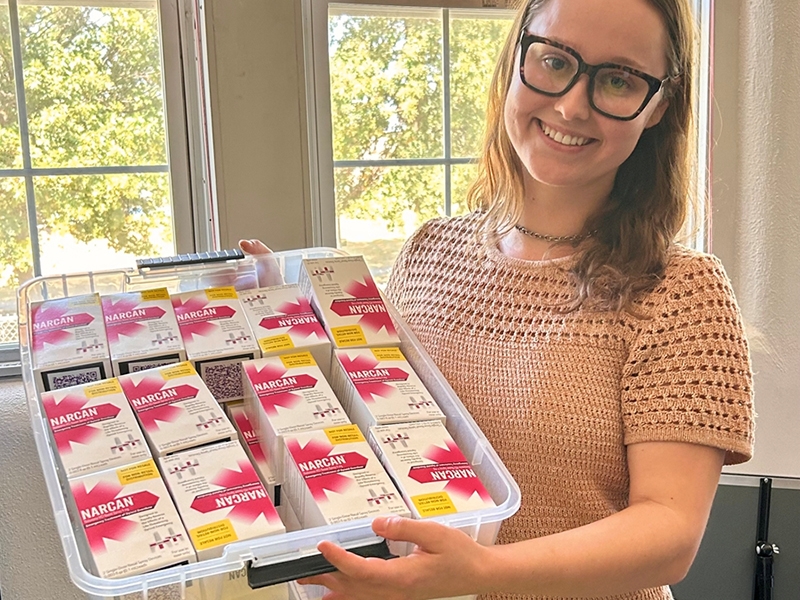
The College of Education and Health Professions' growing public health program successfully completed a comprehensive evaluation process recently and was granted national accreditation for a full five-year term.
The program — in the college's Department of Health, Human Performance and Recreation — earned accreditation status from the Council on Education for Public Health (CEPH) for its Bachelor of Science degree in Public Health and for its new Master of Public Health degree for the first time. The M.P.H. program has two tracks: Public Health Practice and Physical Activity.
CEPH is an independent agency recognized by the U.S. Department of Education to accredit schools of public health and public health programs. The accreditation affirms the quality and rigor of the college's degree program.
"Accreditation is important, as it helps us ensure that the program is meeting the highest standards for our students," said Elizabeth Lindly, director of public health. "This allows us to better prepare our students to enter the public health workforce after graduation."
Public health faculty members Bart Hammig and Ches Jones were also instrumental in the arduous accreditation process, which addressed graduation rates, post-graduation outcomes, alumni perceptions, curricular competencies and experiential learning.
The program's M.P.H. degree became available to students a few years ago. Program faculty immediately began seeking accreditation, which is a lengthy process. An M.P.H. is similar to the prestige of an M.B.A. in the business world. People from various backgrounds are a good fit for the program, including those with degrees in anthropology, sociology, business, agriculture, nursing, environmental science and public policy.
In-depth internship experiences are integral to each of the public health program's degrees. Internships provide students with hands-on experience planning, implementing and evaluating public health projects with community partners and organizations. The program has over 50 community partners to provide these experiences to students at both the undergraduate and graduate levels.
The program's graduates are prepared to work in community health clinics, state or local government health departments, international health organizations, nonprofits and policy and advocacy organizations.
Topics
Contacts
Shannon G. Magsam, director of communications
College of Education and Health Professions
479-575-3138,